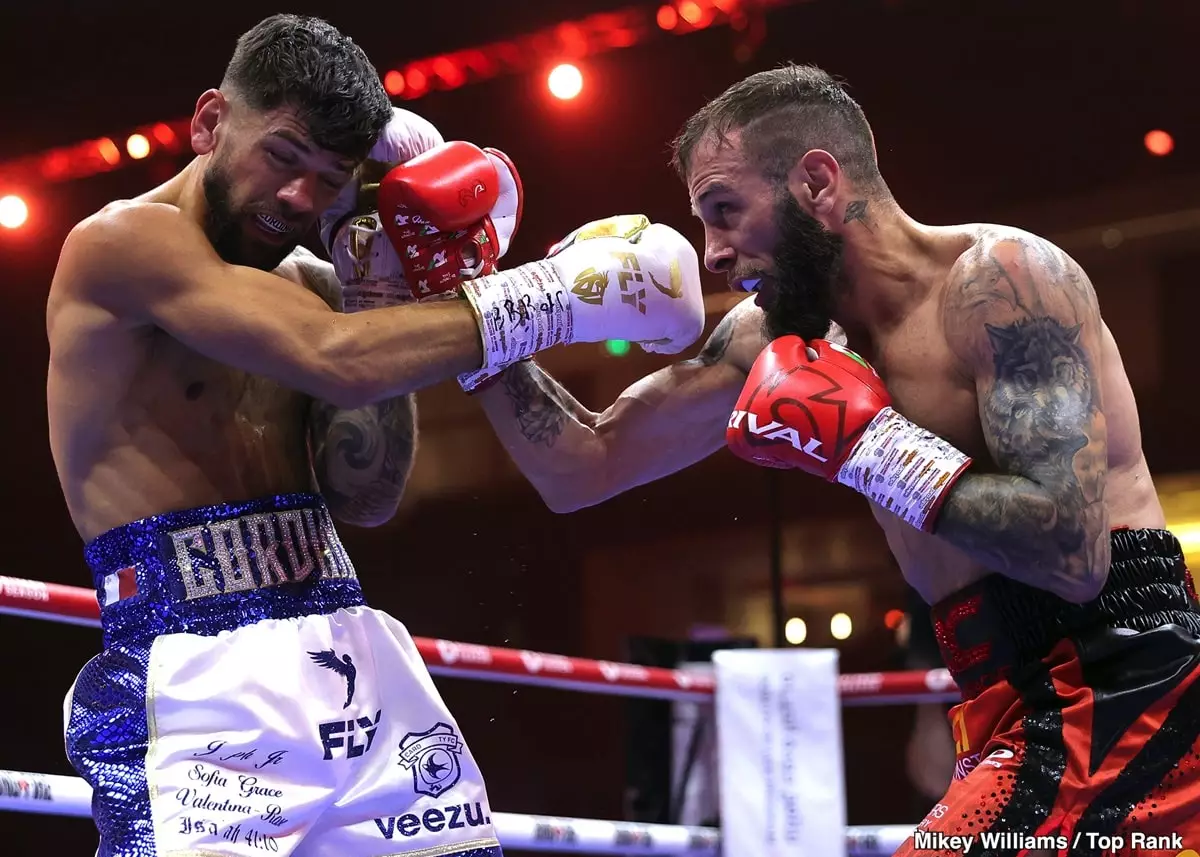The boxing world is abuzz with controversy following the announcement that Anthony Cacace will vacate his IBF super featherweight title instead of defending it against his mandatory challenger, Eduardo ‘Sugar’ Nunez. Promoter Eddie Hearn has publicly voiced his strong discontent regarding this decision, shedding light on a conflicting dynamic in a sport often marked by strategic match-making and financial considerations over pure competition.
Eddie Hearn’s reaction encapsulates the frustration that often brews beneath the surface of professional boxing—an environment where fighters sometimes prioritize lucrative opportunities over defending their titles. Nunez, known for his formidable knockout power with a record of 27-1 (27 KOs), was a clear threat to Cacace, who boasts a less impressive knockout ratio of 8 KOs from 23 wins. Cacace, 35, has not defended his title after defeating former champion Joe Cordina, building an aura of unintended privilege rather than the ambition that typically accompanies a world champion.
Hearn lamented the missed opportunity for Nunez to compete for the title, which many observers believed would not only entertain but also invigorate the division. For Hearn, this is more than just about belt trading; it reflects a deeper issue within boxing. His outcry underscores a reality where fighters, instead of stepping up to challenges, seek easier paths—something he passionately critiques. The promoter’s belief that champions should consistently defend their titles resonates widely, given that it is essential for maintaining the integrity and excitement of boxing as a sport.
Cacace’s decision to vacate the title and pursue a fight against Leigh Wood, a former WBA champion, raises questions about his priorities. While it is undeniably a financially savvy move, especially since Wood remains a popular figure in the UK despite a two-year hiatus from the ring, it speaks to a larger trend in professional boxing where fighters often chase money over legacy. The allure of a title fight that could have challenged Cacace’s standing as champion was put aside in favor of a matchup that promises more immediate financial gain.
Indeed, the forthcoming contest with Wood is likely to generate substantial buzz in the UK, yet it leaves fans pondering whether the sport is losing its competitive edge. The decision appears calculated; Cacace seems aware of his limitations against a fighter like Nunez and instead aims for a path where he can remain relevant in the sport without risking his title or reputation. His choices reflect a pragmatism that, while understandable, could potentially erode the authenticity of championship credentials in boxing.
The ongoing situation illuminates a growing identity crisis in professional boxing, where the distinction between “prizefighting” and true athletic competition blurs. Fighters are increasingly caught between ensuring financial stability for their families and maintaining a competitive spirit. Cacace’s comments hint at this conflict; he aims to secure a legacy through “massive fights,” suggesting that for many athletes, the metrics of success are evolving.
The wrestling match for legacy and dollars raises pertinent questions regarding the responsibilities of champions. Heavy is the head that wears the crown, as they say, and for Cacace, relinquishing his title may ultimately be viewed as a retreat rather than a strategic retreat. The pattern emerging from such decisions is concerning; if too many fighters shy away from legitimate challenges, boxing risks losing its essence—the thrill of competition.
Hearn’s fervent claim that “Sugar” Nunez will soon reclaim a title underscores both an optimism for the future of the sport and a hopeful outlook for Nunez’s career. The promoter’s dedication to seeking out competitive matchups speaks volumes about his commitment to boxing’s integrity. However, as much as promoters strive for the grand spectacle and fanfare of boxing, they are also tasked with navigating the whims of their fighters.
Ultimately, while the anger expressed by Hearn is justified, it serves as a reminder that the landscape of boxing is ever-evolving. The sport’s fans deserve to witness fierce competition, underpinned by the true spirit of fighting; champions should fight, defend, and risk, not merely calculate their futures. The future of boxing hangs in the balance, relying on its champions to uphold the traditions that shaped it while balancing the undeniable pressures of modern prizefighting.

